
SXSW 2011 Funder Resources
GFEM is very pleased to offer a selection of articles to help frame the exciting (and somewhat overwhelming) experience of SXSW.
SXSW 2011 Sessions and Films | GFEM Staff Picks: http://bit.ly/idIwqp
SXSW 2011 Must-Have Mobile Apps: http://bit.ly/hSOqp3
Meet the SXSW 2011 Filmmakers: http://bit.ly/hogFrT
Mobile/Development
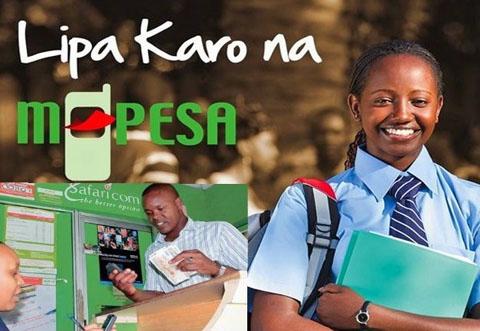 Development Experts Ring Up Kenya's Mobile Money Success Story
Development Experts Ring Up Kenya's Mobile Money Success Story
Voice of America; February 15, 2011
The success of the M-Pesa mobile money system in Kenya is attracting the attention of development experts, aid organizations and companies seeking to replicate its effectiveness. M-Pesa allows users to send money to others through their mobile phones, and pay for more and more items, from bills to groceries, school fees, hotel bookings and even salaries and taxi fares. Digital amounts are exchanged for cash at any of the 25,000 M-Pesa agents or at banks and ATMs.
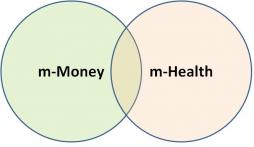
MobileActive.org; November 8, 2010
In this two-part series, MobileActive.org explores how mobile money services can support health care in developing countries. In part one, they described the key ways in which mobile money services can be adopted by the health sector. At the primary level of care, subscription-based mobile payment services can create two-way links between patients and health care providers, as summarized in Part One.
Part Two explores how M-PESA in Kenya has been used for health care financing. We have found very few examples that link mobile financial services to health care, though there is much promise and potential. We also describe the challenges involved in implementing and scaling mobile financial services for health -- a complex endeavor that is complicated by the presence of multiple players. Finally, we outline what needs to happen to catalyze more collaborative innovation in mobile money and mobile health.
Women & Mobile - A Global Opportunity: A Study on the Mobile Phone Gender Gap in Low- and Middle-Income Countries
GSMA Development Fund; January 1, 2010
Mobile phone ownership in low- and middle-income countries has skyrocketed in the past several years. But a woman is still 21% less likely to own a mobile phone than a man. This figure increases to 23% if she lives in Africa, and 37% if she lives in South Asia. Closing this gender gap would bring the benefit of mobile phones to an additional 300 million women. By extending the benefits of mobile phone ownership to women, a host of social and economic goals can be advanced.
Compilation video from mHealth Summit, November 2010, Washington, D.C.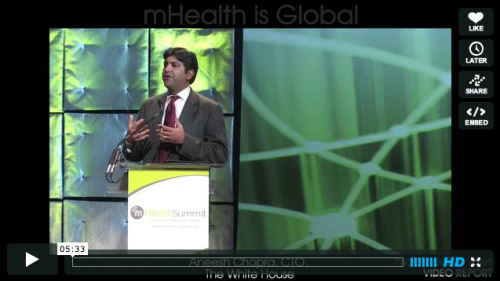
Open Data for Health Outcomes
![]() HeathData.gov
HeathData.gov
HealthData.gov is a one-stop resource for the growing ecosystem of innovators who are turning data into new applications, services and insights that can help improve health. The site includes the Apps Expo, an online resource showing a growing range of applications that have been developed using health data. Here, you’ll find examples of what innovators have been doing to harness the power of data to help improve health and create value.
U.S. Tries Open-Source Model for Health Data Systems
The New York Times; February 2, 2011
The government’s office of national health information technology announced on Wednesday an important step toward the goal of widespread sharing of health data. Two pilot projects, the government said, have successfully used new government-endorsed Internet-based tools for exchanging health information among institutions.
Privacy vs. Openness
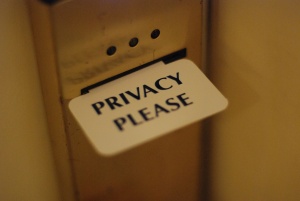 Jarvis: Publicness Needs Its Advocates, Just Like Privacy
Jarvis: Publicness Needs Its Advocates, Just Like Privacy
GigaOm; February 17, 2011
Author and media blogger Jeff Jarvis makes the case that society needs more protection for what he calls “publicness,” and less focus on locking down our personal information or prosecuting companies that use that data.
Related
The Privacy Industry: Scare and Sell
Buzz Machine; February 18, 2011
Why Facebook is Wrong About Privacy
Read, Write, Web; January 11, 2010
Responses to Facebook's about-face on privacy and Mark Zuckerberg's proclamations about the end of privacy.
WikiLeaks, Assange, and Why There's No Turning Back (excerpt)
The Huffington Post; February 9, 2011
WikiLeaks is just one piece of a much larger continuum of changes in how the people and the powerful relate to each other in this new time - changes that are fundamentally healthy for the growth and strength of an open society. Secrecy and the hoarding of information are ending; openness and the sharing of information are coming.
Next Generation Collaboration
 Mozilla Drumbeat
Mozilla Drumbeat
Mozilla Drumbeat is a global community of innovators working collaboratively to build a better web and fuel innovation for good. Drumbeat is specifically reaching out beyond the programmer/ hacker realm – to educators, filmmakers, journalists, scientists, artists – to work together on open projects and design challenges that build a better web and world.
Related
Examples: Popcorn.js HTML5 open video project
http://webmademovies.etherworks.ca/popcorndemo/
http://www.rebelliouspixels.com/semanticremix/
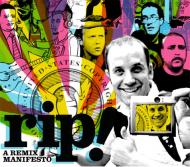 OpenSourceCinema.org
OpenSourceCinema.org
This collaborative website provides an application designed to help filmmakers and audiences create together. Created by Brett Gaylor, writer and director of the acclaimed open source documentary "Rip! A Remix Manifesto," the site offers a suite of powerful tools and structure that facilitates simple but powerful collaboration.
Crowdfunding
Definitions and examples of current crowdfunding models and projects:
http://p2pfoundation.net/Crowdfunding
http://www.fundable.org/
http://www.kickstarter.com/
Games for Change
Games for Change co-president, Asi Burak, spoke at the inaugural TEDxGotham event October 2010. The theme behind the event was “Collaborate, Experiment, Inspire” and included several New York thought leaders who are using new models to create communities, businesses and research for a better world.
Internet Policy
The Real Government Takeover of the Net
Public Knowledge; February 11, 2011
The recent committee hearings on the future of the Internet expose the real “government takeover” of the Internet, which will help give AT&T, Verizon and Comcast/NBC free rein over the Internet at the expense of protecting consumers while stimulating competition, creating jobs and promoting innovation.
Obama's Broadband Disconnect
Politico; February 10, 2011
Most people don’t realize that more than 98 percent of Americans live in areas where wireless broadband service is already available. The companies that control this infrastructure are well on their way to upgrading to next-generation mobile technology — without any help from the government. Underpinning this easily achievable goal is a proposed giveaway of a massive slice of our valuable public airwaves to wireless broadband companies. Though they’ve done a good job convincing Washington politicians there is a “looming spectrum crisis” that requires the American people to surrender this resource with no questions asked, supporting evidence is thin. There’s just no reason we should hand over our airwaves without getting something equally valuable in return.


